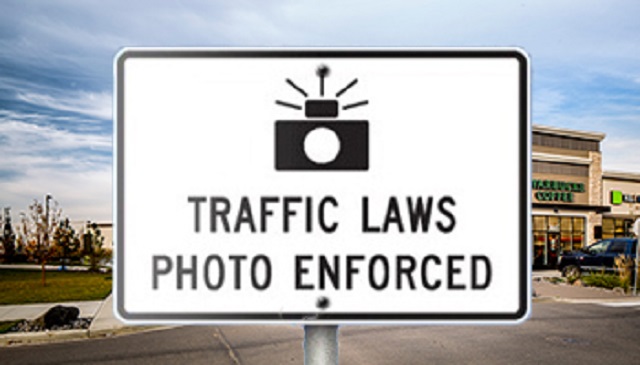City of Red Deer
Over 25 Canadian cities support initiative designating December as Christian Heritage Month

From LifeSiteNews
Major cities that have signed on include Ajax, Durham, Sudbury, Mississauga, Ottawa, and Niagara Falls in Ontario, Alberta municipalities Red Deer and Okotoks, and Regina and Saskatoon in Saskatchewan. In British Columbia, Whistler and Prince George have also signed the petition.
More than 25 Canadian municipalities signed onto a proclamation declaring December as “Christian Heritage Month.”
The proclamation also asks provinces to take the initiative to declare the last month of the year in recognition of Christianity as an important part of Canadian heritage given the fact other faiths have special months of their own.
Major cities that have signed on include Ajax, Durham, Sudbury, Mississauga, Ottawa, and Niagara Falls in Ontario, Alberta municipalities Red Deer and Okotoks, and Regina and Saskatoon in Saskatchewan. In British Columbia, Whistler and Prince George have also signed the petition.
All of the cities have pledged to bring forth legislation that enshrines December as Christian Heritage Month into local law. Many have already done so.
The move by Canadian cities comes after the federal government and provincial governments have yet to proclaim December as Chrisitan Heritage Month.
According to the Christian Heritage Month Initiative, its mission is to have December “declared as Christian Heritage Month, recognizing the values of love, service, and compassion that define the Christian community.”
“The Christian Heritage Month Initiative is a dynamic, multi-denominational movement dedicated to celebrating the vibrant cultural, social, and artistic contributions of Canada’s Christian community,” the initiative says.
The initiative is under the leadership of Jay and Molly Banerjei, who are behind the Christian Music Festival. The organization says that the initiative “unites diverse voices and fosters a sense of belonging, enriching our nation’s identity and promoting inclusivity for all.”
Looking at Mississauga’s recent council motion that designates December as Christian Heritage Month, councillors have said its province under Premier Doug Ford should do the same.
Mississauga’s motion, which has been sent to Ford, was brought forth on October 30 by Councillor Brad Butt.
It reads that Christianity is among the “diverse faiths followed by Mississauga residents and one of the most followed religions in Canada and Mississauga. Christians have made valuable contributions to the cultural, social, religious, and humanitarian fabric of our city and have played an important role in shaping our diverse community.”
The Mississauga motion also makes a point that December is “marked by significant events and celebrations in the Christian calendar, commencing with the observance of Advent and culminating in the celebration of the birth of Jesus Christ, which is also known as Christmas.”
“Christian organizations and places of worship in Mississauga offer religious services, unique events, and initiatives that highlight a strong Christian heritage during the month of December,” and it’s “also widely associated with the tradition of gift giving and the gathering of family, friends, and people of all faiths, during the Christmas season,” its councillors wrote.
“Recognizing the month of December, which is a significant month in the Christian calendar, as Christian Heritage Month provides an opportunity for all residents to celebrate the history, traditions, and teachings of the Christian faith, promoting understanding and appreciation of the diverse religious and cultural heritage of our city.”
Canada is historically a nation founded on Christian ideals and principles. European settlers who came to Canada from France and then later from what is the modern-day United Kingdom were Christian and included missionaries who tried to spread the faith to the local Indigenous populations.
Canada has observed Christmas since 1641, well before its official founding, according to some historical records.
As reported by LifeSiteNews, Conservative Party of Canada (CPC) MPs have urged all Canadians to support a petition that calls on the federal government to proclaim December as “Christian Heritage Month.”
Last year, CPC MP Marilyn Gladu introduced a Private Member’s Bill C-369 that would designate December as “Christian Heritage Month,” saying this is only the “fair and right” thing to do.
The bill reads that “In the negotiations that brought about Confederation, Canada was originally named ‘Dominion of Canada,’ a name reportedly inspired by the passage in the Bible (King James Version) at Psalm 72:8, which says, ‘He shall have dominion also from sea to sea, and from the river unto the ends of the earth.’”
The bill states that December in Canada marks “significant events and celebrations in the Christian calendar, from the beginning of Advent to the celebration of the birth of Jesus Christ; And whereas, according to Statistics Canada’s 2021 Census of Population, Christianity is the largest religion in Canada, with over half of Canadians identifying as Christian.”
City of Red Deer
Photo Radar to disappear in a flash – Red Deer City Council

City Council reviews Automated Traffic Enforcement program
At Tuesday’s Council meeting, City Council received a report reviewing the current operation of The City’s Automated Traffic Enforcement (ATE) program.
Mobile photo speed enforcement, commonly known as photo radar, is one component of the ATE program that has been an important tool in capturing speed violations on city streets. On Tuesday, administration provided a report on the effectiveness of the current program, as well as identified opportunities to optimize resources and enhance public safety through conventional enforcement.
“The ATE program’s number one goal has always been to prevent accidents and increase motorist and pedestrian safety by identifying speeding violations,” said John Ferguson, Manager of Municipal Policing Services. “However, after conducting a thorough review, we have found the current photo speed enforcement program has limitations in achieving our public safety goals.”
Identified limitations of the Mobile Photo Speed Enforcement program included a range of issues, including the inability to capture all traffic and safety violations, a lack of positive change in speeding compliance over time, limited consequences to drivers, and inability to provide targeted enforcement that responds promptly to evolving community needs because of a reliance on external guidelines set by the Government of Alberta’s ATE program.
Conversely, the report found that Community Peace Officer-led enforcement could offer a number of advantages, including the ability to address a wide range of traffic and safety violations, engage directly with drivers, have the flexibility to adapt to emerging community safety needs, and have a greater impact on changing the immediate behaviour of drivers with the stopping and ticketing process.
“Most importantly, Community Peace Officers can identify and remove dangerous driving issues that go beyond speeding, such as stopping uninsured or suspended drivers, impaired or distracted driving, and seatbelt use,” said Manager Ferguson. “This report explores the value or striking a better balance between automated and conventional enforcement that fosters a stronger sense of safety, reassures residents and deters potential offenders.”
Municipal Policing will return in the fall to propose a comprehensive approach for traffic safety enforcement that replaces the use of mobile photo speed enforcement with Community Peace Officers.
For more information about the current ATE program, visit www.reddeer.ca/ATE.
City of Red Deer
City Council paving the way for more house suites, backyard suites, tiny homes, and duplexes

Council adopts new Zoning Bylaw
At Monday’s regular City Council meeting, City Council passed second and third reading of the Zoning Bylaw 3357/2024, replacing the former Land Use Bylaw.
The goal of the Zoning Bylaw is to reduce red tape, permit more uses in each zone and improve ease and understanding of the document. Notable updates include:
- Reduction from 11 residential districts to 9 zones
- Reduction from 7 commercial districts to 6 zones
- Reduction from 5 industrial districts to 3 zones
- More permitted uses in each zone
- More gentle density options to provide increased housing options, including house suites, backyard suites, tiny homes, and duplexes
- Increased building heights to 12.5m that considers sightlines and privacy of existing dwellings
- Greater flexibility for development applications
- Expanded definitions
- Reduction of duplex side yards, removal of side yard setbacks on corner lots, and reduced frontage in residential narrow lots to improve competitiveness
- New regulations to gently transition existing neighbourhoods to maintain character
Following adoption of the Zoning Bylaw, the following amendments were made by City Council.
| Proposed Amendment | Public Hearing Date |
| Increase suites from 15% to 25% of the houses in a neighbourhood. | June 24, 2024 |
| Allow commercial uses on the main floor of R-H Residential High Density. | June 24, 2024 |
| Correct errors in the PS Public Service Zone use list: (*Recommended) a) Gaming and Gambling Establishment (Only at the Westerner) b) Education Primary & Secondary – Add to discretionary use list | May 27, 2024 |
| Returning the Cannabis Retail Sales setbacks to be consistent with the current Land Use Bylaw 3357/2006 | May 27, 2024 |
“The new Zoning Bylaw incorporates years of public feedback and best practices to make a Zoning Bylaw that will result in more housing options, easier development, and ultimately will improve our competitiveness,” said David Girardin, Major Projects Planner. “With the approval of the Zoning Bylaw today, we are not finished our community engagement as there will be future public hearings on potential amendments in the coming weeks, as well as more formal public participation for each additional phase of the Zoning Bylaw.”
The Zoning Bylaw will come into effect in 30 days. Public participation for phase two of the Zoning Bylaw will begin later this year. For more information, visit engage.reddeer.ca.
-

 2025 Federal Election15 hours ago
2025 Federal Election15 hours agoBREAKING: THE FEDERAL BRIEF THAT SHOULD SINK CARNEY
-

 2025 Federal Election15 hours ago
2025 Federal Election15 hours agoCHINESE ELECTION THREAT WARNING: Conservative Candidate Joe Tay Paused Public Campaign
-

 2025 Federal Election1 day ago
2025 Federal Election1 day agoOttawa Confirms China interfering with 2025 federal election: Beijing Seeks to Block Joe Tay’s Election
-

 2025 Federal Election1 day ago
2025 Federal Election1 day agoReal Homes vs. Modular Shoeboxes: The Housing Battle Between Poilievre and Carney
-

 2025 Federal Election2 days ago
2025 Federal Election2 days agoCarney’s budget means more debt than Trudeau’s
-

 International2 days ago
International2 days agoPope Francis has died aged 88
-

 Business2 days ago
Business2 days agoCanada Urgently Needs A Watchdog For Government Waste
-

 2025 Federal Election1 day ago
2025 Federal Election1 day agoHow Canada’s Mainstream Media Lost the Public Trust

